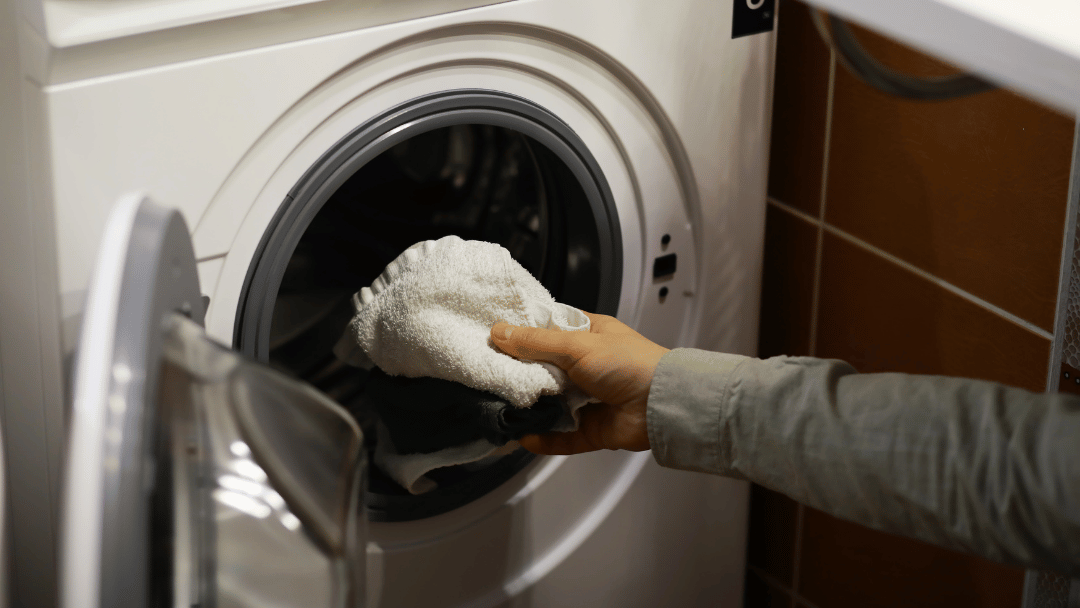Image source: Canva.com
When shopping for a washing machine or trying to better understand your home’s energy consumption, it’s helpful to know the average wattage of a standard washing machine. Wattage directly influences energy usage and costs, so understanding it can help you make smarter, more energy-efficient choices.
Average Wattage of Washing Machines
The average wattage of a standard washing machine ranges from 350 to 500 watts per cycle. However, this can vary widely based on factors such as the machine’s type, size, and efficiency:

Front-Load Washers
Typically use between 350 and 450 watts. These machines are designed to be energy-efficient, often using less water and power.
Top-Load Washers
Generally consume more energy, averaging between 400 and 500 watts, especially in older models.


High-Efficiency Models
Newer ENERGY STAR-rated machines often fall on the lower end of the wattage scale, sometimes using as little as 200 to 300 watts per cycle.
How Wattage Translates to Energy Consumption
To calculate the actual energy consumption, you’ll need to consider the cycle duration and the number of loads you run:
- Energy Consumption Formula:
- Energy used (kWh) = (Wattage × Hours of Use) / 1,000
- Example:
- If your washing machine uses 400 watts and you run a 1-hour cycle:
- (400 × 1) / 1,000 = 0.4 kWh per cycle.
- If your washing machine uses 400 watts and you run a 1-hour cycle:
Over a year, assuming 300 loads, this amounts to 120 kWh annually for a standard washer.
Cost of Powering a Washing Machine
Your electric bill reflects the total kilowatt-hours (kWh) used each month. Below is a breakdown of costs for a 400-watt washing machine used for 300 loads annually, resulting in a total consumption of 120 kWh per year. Costs are calculated based on average state electricity rates:
| State | Average Electricity Rate | Cost Per Month | Cost Per Year |
|---|---|---|---|
| California | 31.64¢ / kWh | $3.16 | $37.97 |
| New York | 24.98 ¢ / kWh | $2.49 | $29.98 |
| Texas | 14.96 ¢ / kWh | $1.49 | $17.95 |
| Massachusetts | 29.17 ¢ / kWh | $2.92 | $35.00 |
| Florida | 14.05 ¢ / kWh | $1.40 | $16.86 |
| Virginia | 15.50 ¢ / kWh | $1.55 | $18.60 |
| New Jersey | 19.32 ¢ / kWh | $1.93 | $23.18 |
| Maryland | 18.38 ¢ / kWh | $1.84 | $22.06 |
| Washington | 12.42 ¢ / kWh | $1.24 | $14.90 |
| US Average | 16.83 ¢ / kWh | $1.68 | $20.20 |
Factors Affecting Wattage and Energy Usage
Cycle Type
Hot water cycles consume significantly more energy since heating water accounts for up to 90% of energy use during a load. Opting for cold water cycles can drastically reduce electricity consumption.
Load Size
Running full loads is more energy-efficient than smaller, partial loads, as the energy consumed per pound of laundry decreases with a full drum.
Age of the Machine
Older machines are less energy-efficient, often consuming higher wattage per cycle compared to modern ENERGY STAR models.
Spin Speed
Higher spin speeds reduce drying time, indirectly saving energy by minimizing the workload for your dryer.
How to Reduce Washing Machine Energy Use
- Use Cold Water: Switching to cold water cycles can save up to 50% or more on energy costs.
- Choose Energy-Efficient Models: Look for ENERGY STAR-certified machines that use advanced technology to reduce wattage and water consumption.
- Wash Full Loads: Avoid running multiple smaller loads whenever possible.
- Maintain Your Machine: Regular cleaning and maintenance ensure optimal performance and energy efficiency.

The average wattage of a standard washing machine is around 350 to 500 watts, but your actual energy consumption depends on factors like cycle settings, load size, and machine type. By understanding these details and adopting energy-saving habits, you can significantly lower your electricity bill while maintaining a clean wardrobe. Whether you’re considering an upgrade or simply want to optimize your current machine’s efficiency, focusing on energy usage can benefit both your wallet and the environment.





